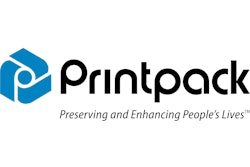European countries face a June 30 deadline for enacting national laws that comply with the 1994 European Union Directive on Packaging Waste Reduction. That directive mandates that within five years from June, between 50 to 65% of packaging waste by weight must be recovered. It further requires that 25 to 45% of each packaging material has to be recycled, with a minimum of 15% in each category. Of course, a number of countries have long had even more stringent waste recovery laws, most notably Germany. That country also has the kind of packaging waste collection system mandated by the EU Directive, the Duales System Deutschland (DSD) which began in 1991, and is well known for the "green dot" it awards participants. But even as the laggard countries get their laws and collection systems up and running, some U.S. companies are wondering whether those laws and systems are bringing packaging innovation to a dead halt. Tom Dunn, director of development at Printpack Inc. (Atlanta, GA), tells the story of one of its customers who asked Printpack to change its packaging so that the company's U.S. manufacturing line could run faster. The customer, who Dunn declines to name, had already registered his packaging with several European countries, and had been awarded a green dot. Printpack was constrained by the terms of those registrations. "We could not increase the weight of the packaging, which made it difficult for us to use some polyethylene copolymers," explains Dunn. When Printpack finally produced the new alternative packaging, the customer declined to go to DSD to reregister it, fearing there might be some procedural difficulties. Mark Nelson, director of scientific and regulatory affairs for Pepsi Cola Intl., Purchase, NY, agrees that many American companies face barriers to packaging innovation because of the EU Waste Directive. He notes that the German waste packaging ordinance went into effect in 1992, about a year after the DSD was established. That ordinance amounts to a mandate for recyclable packaging, since waste incineration even with energy recovery is banned in Germany. That discriminates against, to use one example, laminated packaging materials. "It is kind of hard to recycle plastic with paper mixed in," notes Nelson. On the other hand, France does allow incineration with energy recovery. But even while national laws are kicking in, the EU Research, Development, and Scientific Directorate is taking a second look at the 15% minimum recycling goal as it applies to plastics. That target, like the others in the directive, is open to revision every five years. At present, only 6% of all plastics waste is recycled in Europe. Further, it is anticipated that the amount of plastics waste generated will increase almost 40% by the year 2000, according to Jean Phillippe Montfort, an attorney with the Brussels office of Keller & Heckman, the Washington law firm. The EU Directive put off explicit requirements for marking of packaging, in part because of controversies surrounding that issue. But the Commission of the European Communities has now released a draft on that subject. It would require a backwards letter "C" with an arrow pointing upward with the percent of recycled content shown at the top of the arrow. Reusable packaging would show two parallel horizontal arrows pointing in opposite directions inside the "C." c
Europe moves forward on disposal laws
As EU member nations work to meet the packaging waste directive, U.S. manufacturers are increasingly concerned that laws will discourage packaging innovation.
Apr 30, 1996
Companies in this article
Videos from Printpack
Machinery Basics
Researched List: Engineering Services Firms
Looking for engineering services? Our curated list features 100+ companies specializing in civil, process, structural, and electrical engineering. Many also offer construction, design, and architecture services. Download to access company names, markets served, key services, contact information, and more!
Download Now
Annual Outlook Report: Automation & Robotics
What's in store for CPGs in 2025 and beyond? Packaging World editors explore the survey responses from 118 brand owners, CPG, and FMCG Packaging World readers for its new Annual Outlook Report.
Download
Downloads


























